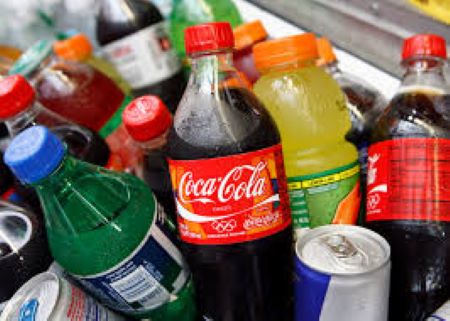The Minister of Finance and Coordinating Minister of the Economy, Mr. Wale Edun, has endorsed the benefits of implementing a sugary drinks tax, emphasizing its potential to improve public health and generate additional revenue for the government.
Edun made these remarks when the National Action on Sugar Reduction (NASR), a coalition of non-governmental organisations, visited him on Wednesday in Abuja.
The minister acknowledged the presence of a sugar tax and highlighted the dual pressures on beverage companies to create jobs and reduce poverty, while also addressing the negative health consequences of their products.
He noted that while job creation by these companies was a positive outcome, the consumption of Sugar-Sweetened Beverages (SSBs) carries significant public health costs.
ALSO READ NASR launches campaign to reduce consumption of sugary drinks
Edun stressed that the government’s tax revenue from SSBs must be balanced against industry needs, including pricing and the cost of living.
He revealed that the government is considering a temporary suspension of the sugar tax under a six-month economic stabilisation plan to help beverage companies navigate the current economic difficulties.
“This measure aims to help beverage companies navigate the current economic difficulties without going under,” he said.
He emphasized that the suspension is intended as a temporary relief, with plans to reintroduce the tax once the economy stabilises.
Edun compared the arguments against the SSB tax to those made in the past against tobacco taxation, underscoring the importance of data-driven analysis in shaping public policy.
He encouraged the coalition and advocacy groups to continue providing incisive studies and robust data to strengthen the case for the sugar tax.
While the government does not favour companies selling unhealthy products, it recognises the need to support businesses and help people cope with the current cost of living.
The minister highlighted the role of the Presidential Economic Coordination Council in this decision, acknowledging the necessity of government revenue but also the need to offer relief amid economic challenges.
“The temporary suspension of the sugar tax is seen as a measure to stabilise the economy and support the beverage industry during this critical period,” he said.
ALSO READ Trump rally shooting: No place for this kind of violence – Biden
He also noted that the Minister of Health and Social Welfare is making efforts to reduce the cost of drugs and pharmaceuticals.
Speaking on behalf of the coalition, Comrade Bernard Enyia, co-chair of the NASR coalition, emphasized the significant public health costs associated with the consumption of SSBs, including obesity and dental problems.
Enyia, who is also the vice president of the Diabetes Association of Nigeria, highlighted that the costs of insulin and diabetes care have doubled in the country.
The Advocacy Lead at Gatefield, Ms. Shirley Ewang, presented a case for sugar-sweetened beverage taxes on behalf of the NASR coalition.
Ewang argued that SSB taxes matter because of their revenue generation potential and the possibility of revenue being used for health programmes.
She noted that despite industry concerns, Coca-Cola’s 2023 profit report revealed that profits increased by over 50% in emerging markets like Nigeria, indicating strong profitability even with the tax.
Ewang called for the government to require beverage manufacturers to provide their revenue data, ensuring that policy decisions are based on comprehensive data reflecting both economic and public health impacts.
She emphasized the importance of prioritising the health of Nigerians in policy considerations.
The Federal Government adopted a sugary drinks tax to tackle rising levels of obesity and other diseases in the country and to generate much-needed funds following the financial hit of the COVID-19 pandemic.
The tax, signed into law as part of the 2021 Finance Act, adds 10 Naira (N) per litre (US$0.02/litre) of all non-alcoholic and Sugar-Sweetened Beverages (SSBs).


